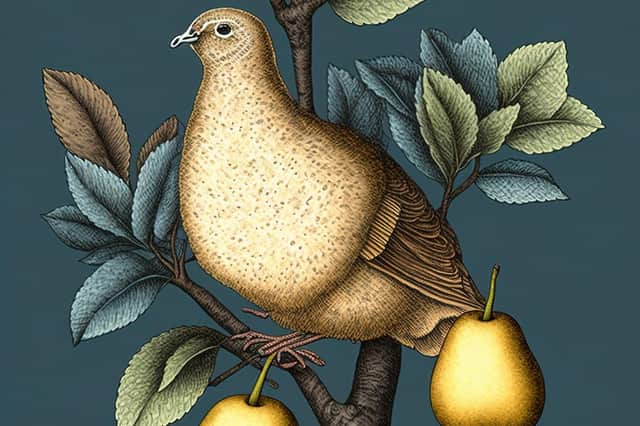A legal twist on the 12 days of Christmas: Yorkshire law firm provides some festive fun


The agricultural team at Wilkin Chapman Solicitors have drawn up their 12 days of Christmas guide to some quirky countryside rules
A partridge in a pear tree… but not on Christmas Day. Section 3 of the Game Act 1831 makes it illegal to kill or take game, including a partridge in a pear tree on Christmas Day.
Two turtle doves… except in Venice, where it was made illegal to feed fowl anywhere in the city!


Three French hens… do they looked worried? The Dogs (Protection of Livestock) Act, 1953 prohibits your pet dog from “worrying” a farmer’s animals, including any hens, on agricultural land.
Four Calling Birds… the Unlawful Games Act of 1541 made it illegal to take part in any sporting activity, except for archery, on Christmas day. No wonder the birds call loudest on Christmas Day!
Five Gold Rings… according to Dr. Anna Hughes, an astrophysicist in America, the five gold rings actually refer to a five ring-necked pheasant or just a pheasant to us Yorkshire folk!
Six geese-a-laying… but not a royal egg. George I made it an executable offence to allow your pet to mate with a pet from the royal household.


Seven swans-a-swimming… you’ll be fine admiring the swans but be careful if handling any salmon over Christmas. Section 32 of the Salmon Act of 1986 makes it an offence to handle salmon in suspicious circumstances.
Eight maids-a-milking… but not walking. The Metropolitan Streets Act of 1867 makes it illegal to walk cows down the street in daylight, except with the permission of the commissioner of police.
Nine ladies dancing… but not with a cow. Section 12 of the Licensing Act of 1872 makes it an offence to be drunk and in charge of a cow. We’re assuming of course, the nine ladies were the eight maids-a-milking plus our Katie Wright, Head of Agricultural in Beverley (sorry Katie!)
Ten lords-a-leaping… but not whilst wearing their armour. A 1313 statute forbids members of both houses from wearing their armour when in the houses of parliament.
Eleven pipers piping… but not singing. Section 60 of the Metropolitan Police Act of 1839 means singing an obscene song in the streets is an offence. Double check those Christmas carol lyrics!
Twelve drummers drumming… there is an old African proverb which says “he that beats the drum for the mad man to dance is no better than the mad man himself” if true it would require license in England, The Madhouses Act of 1774 restricts property owners to one “lunatic” per residence.
Wishing you all a happy Christmas from the Wilkin Chapman agricultural team: Katie Wright, Charlotte Boyes, James Lloyd, David Richardson, Alistair Latham, James Marsden and Lesley Archer.
If you would further information on how we can help you, please contact Charlotte Boyes on 01482 398 829, email [email protected] or visit Agriculture & Food Sector Solicitors Wilkin Chapman LLP